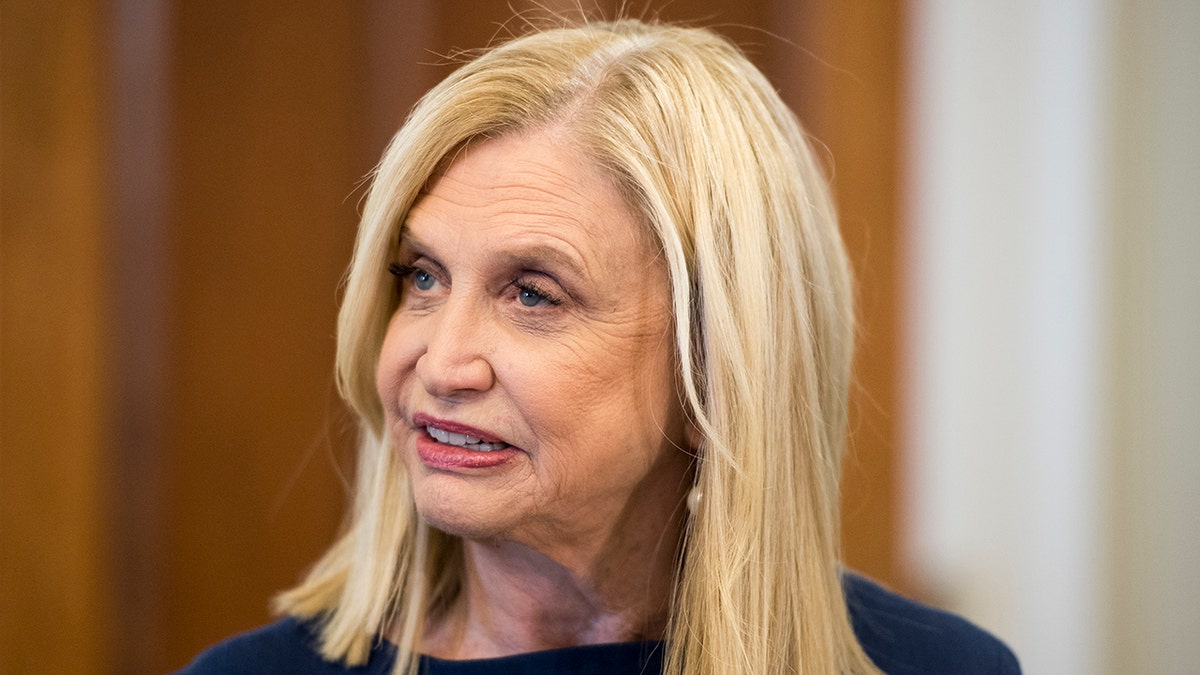Judge tosses Trump’s bid to halt a subpoena from Manhattan DA looking into his tax returns
A New York City judge has denied an attempt by Trump’s campaign to block a subpoena by Manhattan District Attorney Cy Vance, as he seeks financial information including the president’s tax returns.
In a brief filed Monday, lawyers for the House Oversight Committee argued that if the D.C. Circuit Court of Appeals doesn't decide the case on its subpoena of President Trump's tax records quickly, the president will have successfully "run out the clock" on its subpoena that was first issued last year.
The plea to the court amounts to a Hail Mary effort for the House to get a hold of the president's tax returns not just before the Nov. 3 presidential election, but before the new Congress begins in January. The House has argued that its efforts to get the documents are for legislative purposes, so that it can "illuminate the need for legislative reforms." Trump's lawyers meanwhile have argued that the investigation is outside of Congress' separation-of-powers purview while Trump has called the investigation politically motivated.
"If this Court does not resolve this case now, the Trump Plaintiffs will almost certainly have succeeded in blocking the 116th Congress from obtaining any documents pursuant to its subpoena," the House brief reads.
SUPREME COURT PUNTS, DENIES TRUMP IMMUNITY BUT BLOCKS HOUSE DEMS FROM TAX DOCS
It adds later: "[Y]ears of litigation to stall compliance with a valid subpoena significantly interferes with Congress’s functioning as a coordinate branch. This raises different, but just as serious, separation-of-powers concerns... This Court should not permit the Trump Plaintiffs to invoke unnecessary procedural steps to run out the clock on a subpoena whose validity has twice been affirmed."
The case Trump v. Mazars, is a continuation of a Supreme Court case that was ruled on in July. The court punted on the ruling. It did not affirm the validity of the House subpoena, instead generally ruling that such subpoenas could be valid and kicking the case to lower courts for further consideration.
"When Congress seeks information 'needed for intelligent legislative action,' it 'unquestionably' remains 'the duty of all citizens to cooperate,'" Chief Justice John Roberts wrote. But, he said, subpoenas from Congress to the president "implicate special concerns regarding the separation of powers. The courts below did not take adequate account of those concerns."

Rep. Carolyn Maloney, D-N.Y., holds a news conference on guns and suicide in the Longworth House Office Building on Monday, Oct. 21, 2019. Maloney is the chairwoman of the House Oversight Committee behind the subpoena of Trump's records. (Photo By Bill Clark/CQ-Roll Call, Inc via Getty Images)
JUDGE THROWS OUT TRUMP'S BID TO STOP MANHATTAN DA SUBPOENA OF HIS PERSONAL AND BUSINESS TAX RECORDS
The Supreme Court also ruled on the same day on a case involving Manhattan District Attorney Cyrus Vance's criminal probe in which he was seeking Trump's tax returns. A district judge in late August rejected Trump's arguments in that case and said the president would have to turn over the documents, but Trump's lawyers said they would appeal.
The D.C. Circuit is currently considering whether it should pass the case further down the ladder to the district court or whether it should resolve the case itself consistent with the Supreme Court's guidance. The House is arguing that it should not.
"Here, none of the special considerations set forth by the Supreme Court requires a remand to the district court," the House said of the lower trial court, which is where factual records are established in the federal court system. "None of the four considerations identified by the Supreme Court requires the development of a new factual record."
CLICK HERE TO GET THE FOX NEWS APP
The president's lawyers are arguing that the appeals court should either rule in favor of the president immediately or, if it does not, it should send the case back to the district court, arguing that such a move would be "usual practice" for the court. Either way, Trump's legal team says, the subpoena is not valid.
"Evaluated under the existing record (as it must be), the Mazars subpoena flunks every aspect of the multi-factor test articulated by the Supreme Court," the Trump brief says. "The Committee did not explain (in detail and with evidence) its precise legislative aims. Any legitimate aims it might have do not warrant the significant step of coercing disclosure of the President’s papers."
Even if the D.C. Circuit rules quickly in favor of the House, it's not clear the president's documents would be revealed before Election Day or even the end of the Congress as Trump's lawyers could try to bring the case back to the Supreme Court.
Fox News' Barnini Chakraborty contributed to this report.





